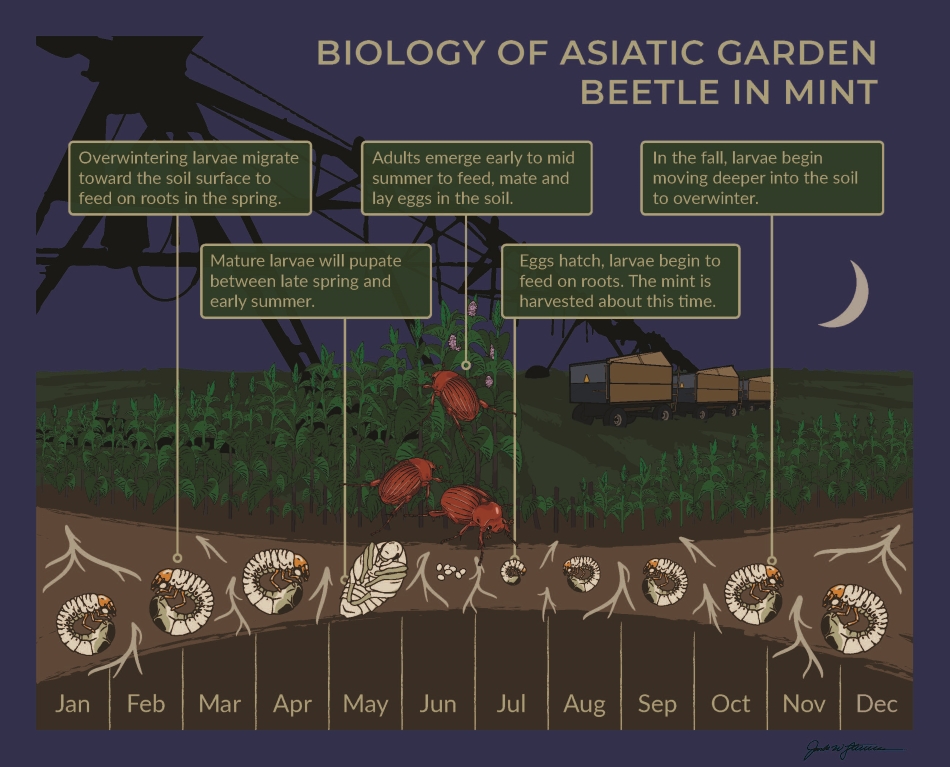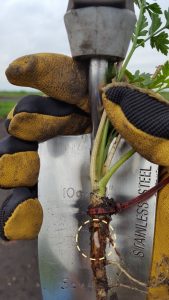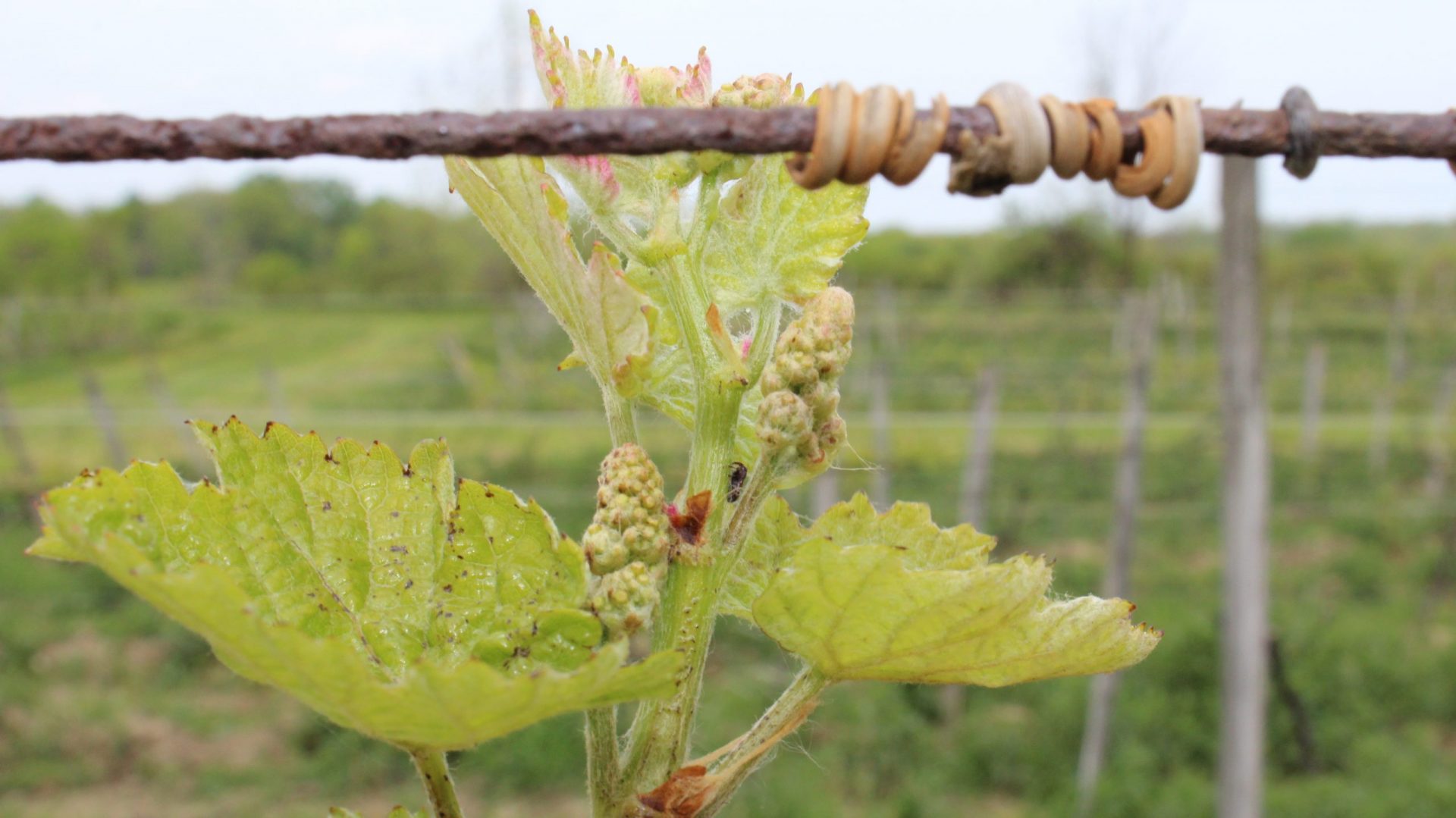Current Research Projects
Developing action thresholds for management of Asiatic garden beetle in commercial mint production

Indiana is one of the leading states in the nation for peppermint and spearmint oil production! Mint is a perennial crop that is often rotated with corn and soybean in Indiana and a pest of these row crops, the Asiatic garden beetle (AGB), can be problematic in young and established mint fields if they are not managed effectively prior to mint planting. We are collaborating with Dr. Richmond’s Soil Insect Ecology lab to determine the risk factors associated with AGB infestation and help growers develop an action threshold for management based on sampling field soils for AGB larvae (white grubs).
Evaluating carrot weevil ecology to promote sustainable IPM in specialty cropping systems

The carrot weevil is a devastating pest of high value specialty crops in the family Apiaceae, namely carrots, parsley, and celery. Managing this weevil is a key challenge for growers in the Great Lakes region of the US and Canada: the adults weevils are challenging to monitor because they are well camouflaged and do not consistently come to traps, and the damaging larvae are hidden inside plant petioles where they are protected from natural enemies and insecticides. We are working to better understand the role of factors like plant breeding, carrot weevil population genetics, and carrot weevil behavior, on the likelihood of crop damage and management success.

